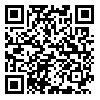Volume 1, Issue 1 (7-2008)
IJMEHM 2008, 1(1): 17-26 |
Back to browse issues page
Download citation:
BibTeX | RIS | EndNote | Medlars | ProCite | Reference Manager | RefWorks
Send citation to:



BibTeX | RIS | EndNote | Medlars | ProCite | Reference Manager | RefWorks
Send citation to:
Ismailabadi A, Bastani A. Legal and ethical critisim to lobotomy. IJMEHM 2008; 1 (1) :17-26
URL: http://ijme.tums.ac.ir/article-1-322-en.html
URL: http://ijme.tums.ac.ir/article-1-322-en.html
Abstract: (15454 Views)
Background: The first experimental lobotomy was performed in psychiatric patients at 1930. At the beginning, the purpose of such experiments was the treatment of certain patients such as psychotics, sexual offenders and schizophernics, but during the years, the unpredictable results and harms appeared. Nowadays the treatment is limited to medical treatment and psychosurgery which includes two new forms of lobotomy named cingulotomy and capsulotomy. Previously physicians were performing dangerous surgery on a wide rage of patients irrespective of their consent and objections. In fact they treated them in the favor of “patients’ and public (social) interests” and some claims have risen against it. In this regard some legislators such as Canadian legislator enacted or amended their regulations and these regulations criticized.
Method: We selected the most related articles and books among the related resources. For completing this article, we searched by the keywords of Lobotomy, enforced offender to treatment, ethics.
Results & Conclusion: Studying some known cases demonstrated harmful effects of this special surgery and regarding to the ethical and legal points of view, operating patients only for the interest of patients or public, irrespective of their consent is not legitimate.
Method: We selected the most related articles and books among the related resources. For completing this article, we searched by the keywords of Lobotomy, enforced offender to treatment, ethics.
Results & Conclusion: Studying some known cases demonstrated harmful effects of this special surgery and regarding to the ethical and legal points of view, operating patients only for the interest of patients or public, irrespective of their consent is not legitimate.
Type of Study: Research |
Accepted: 2013/09/8 | Published: 2017/09/27
Accepted: 2013/09/8 | Published: 2017/09/27
Send email to the article author
| Rights and permissions | |
 |
This work is licensed under a Creative Commons Attribution-NonCommercial 4.0 International License. |





